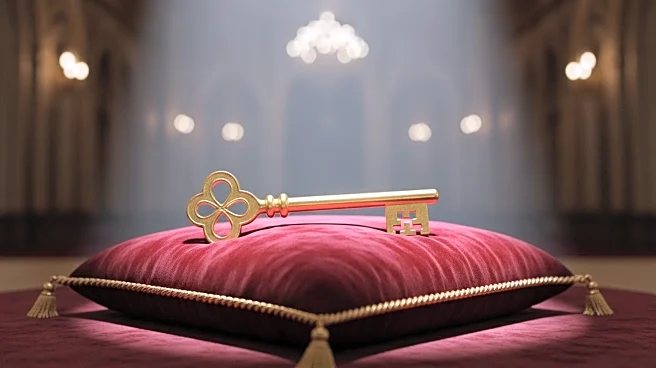What's Happening?
On Hoshana Raba, the final day of Sukkot, Israel celebrated the return of hostages who had been held captive for two years. The event was marked by public gratitude towards President Trump, who played a significant role in the negotiations leading to their release. In Tel Aviv's Hostage Square, a woman displayed a placard thanking President Trump, highlighting the international cooperation involved in the successful resolution of the hostage situation.
Why It's Important?
The release of hostages on Hoshana Raba underscores the importance of international diplomacy and cooperation in resolving complex geopolitical issues. President Trump's involvement in the negotiations demonstrates the influence of U.S. leadership in global affairs. The successful outcome not only strengthens U.S.-Israel relations but also sets a precedent for future diplomatic efforts in similar situations. This event may impact public perception of President Trump's foreign policy and his administration's approach to international crises.
What's Next?
The return of hostages may lead to further diplomatic engagements between the U.S. and Israel, potentially influencing future negotiations and collaborations. The event could also prompt discussions on the effectiveness of current diplomatic strategies and the role of international leaders in resolving hostage situations. As the hostages reintegrate into society, there may be ongoing support and monitoring to ensure their well-being and address any psychological impacts of their captivity.
Beyond the Headlines
The celebration of Hoshana Raba with the return of hostages highlights cultural and religious dimensions in international diplomacy. The timing of the release during a significant Jewish holiday adds layers of meaning to the event, reflecting the intersection of cultural traditions and political actions. This development may influence how future diplomatic efforts are framed within cultural contexts, emphasizing the role of cultural sensitivity in international relations.










